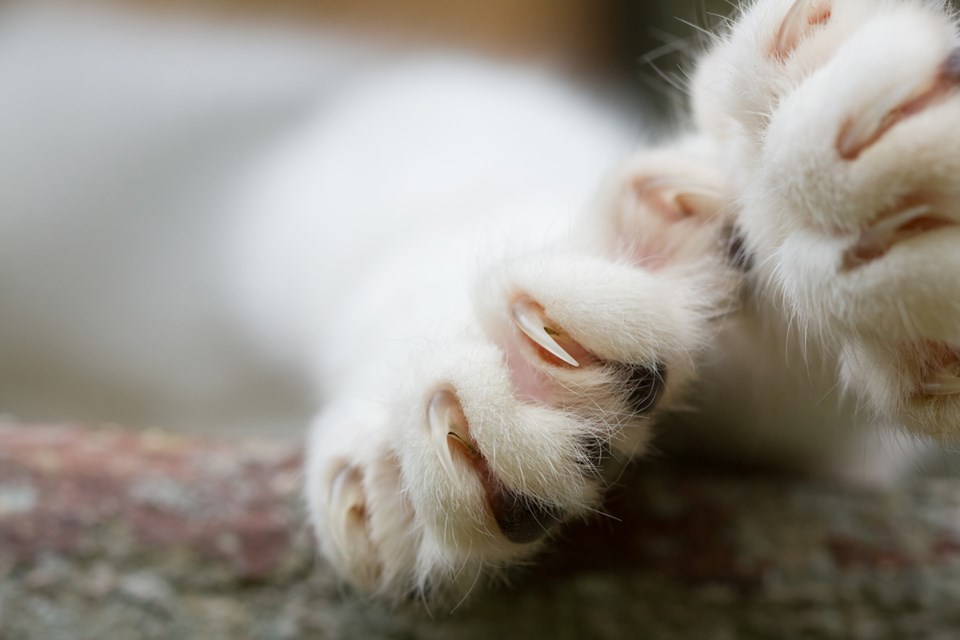Is getting your cat declawed an act of animal cruelty?
The B.C. Society for the Provention of Cruelty to Animals, as well as the Vancouver Orphaned Kitten Rescue Association, think so.
They are calling on the College of Veterinarians of B.C. to ban the practice.
“Declawing a cat does not just remove the nails, it removes bones of the toes – comparable to amputating all of a human’s fingers at the last knuckle,” says the BCSPCA’s senior manager of animal health.
Dr. Emilia Gordon says studies show that declawed cats are at higher risk for biting and aggression, are more likely to have trouble using the litterbox, and have a significantly increased chance of back pain.
VOKRA quotes veterinarian Christina Schelling on its website. “Declawing is not like a manicure,” the vet says. “It is serious surgery. Your cat's claw is not a toenail. It is actually closely adhered to the bone. So closely adhered that to remove the claw, the last bone of your cat's claw has to be removed."
Last March, the Canadian Veterinary Medical Association of Veterinarian Medicine sent out a notice to all of its members saying that the practice causes unnecessary suffering.
"The CVMA views this surgery as unacceptable as it offers no advantage to the feline and the lack of scientific evidence leaves us unable to predict the likelihood of long-term behavioural and physical negative side-effects,” said Dr. Troy Bourque, the association's president.
The BC college of veterinarians says that it is aware of people’s concerns but is not yet ready to make a decision on banning the practice.
“At this time,” the association says in a statement,” the only jurisdiction in Canada which has banned the procedure is Nova Scotia. The ban will take effect in March 2018.
“Although we appreciate the concerns of various stakeholders, the CVBC believes in careful consideration of this animal welfare matter and has planned a study of the impacts of such action in Nova Scotia and other jurisdictions. The goal of the study is to examine the optimal way of meeting the objectives of all stakeholders.”
After its study, the CVBC will hold consultations.



